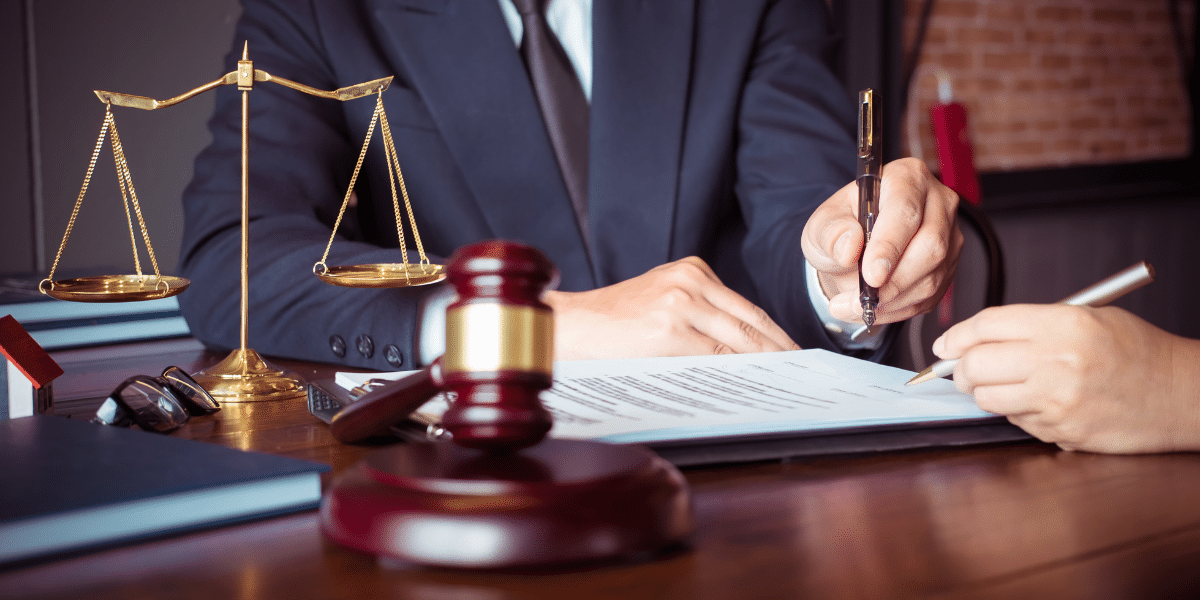
Unlock the secrets to successfully navigating mediation in personal injury cases with our expert guide.

Understanding Mediation in the Context of Personal Injury
Mediation is a voluntary process where a neutral third party, the mediator, helps the parties involved in a personal injury dispute to reach a mutually acceptable resolution. It is an alternative to litigation and can be a more efficient and cost-effective way to resolve disputes.
In the context of personal injury cases, mediation allows the injured party and the responsible party to discuss their concerns, interests, and needs in a controlled and confidential environment. It provides an opportunity for both parties to express their perspectives and work towards a resolution that satisfies their respective goals.
During mediation, the mediator facilitates communication, assists in identifying common ground, and helps the parties explore potential solutions. The mediator does not make decisions or impose solutions but instead encourages the parties to find their own mutually agreeable outcome.
Understanding the mediation process and its potential benefits is crucial for both injured parties and responsible parties in personal injury cases. By engaging in mediation, parties can have more control over the outcome of their dispute and avoid the uncertainties and costs associated with going to trial.
Essential Skills Every Mediator Should Possess
Being a successful mediator in personal injury cases requires a specific set of skills. Here are some essential skills every mediator should possess:
1. Active Listening: Mediators must have excellent listening skills to understand the parties’ concerns, interests, and needs. Active listening involves paying attention to verbal and nonverbal cues and demonstrating empathy.
2. Communication: Effective communication is essential for a mediator to convey information clearly and facilitate productive dialogue between the parties. Mediators should be able to ask open-ended questions, reframe statements, and summarize discussions.
3. Neutrality: Mediators must remain neutral and impartial throughout the mediation process. They should not take sides or favor any party, ensuring a fair and balanced approach to resolving the dispute.
4. Problem-Solving: Mediators should have strong problem-solving skills to help the parties identify and evaluate potential solutions. They should be creative in generating options that meet the parties’ interests and assist in evaluating the pros and cons of each option.
5. Emotional Intelligence: Mediators should be able to understand and manage their own emotions and effectively handle the emotions of the parties involved. Emotional intelligence helps create a safe and supportive environment for open and honest discussions.
By possessing these essential skills, a mediator can facilitate constructive conversations, foster understanding, and guide the parties towards a mutually beneficial resolution in personal injury cases.
Preparing Your Case for Mediation: A Step-by-Step Guide
Proper preparation is key to successful mediation in personal injury cases. Follow this step-by-step guide to prepare your case for mediation:
1. Gather Information: Collect all relevant documents, such as medical records, accident reports, insurance information, and any other evidence related to your personal injury claim.
2. Assess Strengths and Weaknesses: Evaluate the strengths and weaknesses of your case. Identify the key arguments and evidence that support your position and anticipate any potential challenges or weaknesses.
3. Define Your Goals: Determine your desired outcome for the mediation. Clarify your goals and priorities, such as seeking compensation for medical expenses, lost wages, or pain and suffering.
4. Develop a Strategy: Create a strategic plan for the mediation session. Consider the strengths of your case and potential negotiation tactics. Think about possible concessions you are willing to make and areas where you are not willing to compromise.
5. Communicate with Your Attorney: Consult with your personal injury attorney to discuss your case and develop a mediation strategy. Your attorney can provide valuable guidance and advocate for your interests during the mediation process.
By following these steps and adequately preparing your case for mediation, you can increase the likelihood of reaching a favorable resolution in your personal injury dispute.
Tactics for Overcoming Common Mediation Challenges
Mediation can present various challenges, but with the right tactics, these challenges can be overcome. Here are some strategies to overcome common mediation challenges in personal injury cases:
1. Establish Trust and Rapport: Building trust and rapport with the other party is essential for effective communication and problem-solving. Take the time to establish a positive relationship and demonstrate your willingness to work towards a mutually beneficial outcome.
2. Focus on Interests, Not Positions: Instead of getting stuck on rigid positions, focus on the underlying interests of both parties. By understanding each other’s interests, you can explore creative solutions that meet those interests while finding a middle ground.
3. Use Effective Communication Techniques: Employ active listening, empathy, and clear communication to facilitate understanding and avoid misunderstandings. Restate the other party’s concerns to show that you are actively listening and seeking common ground.
4. Consider Alternative Solutions: Be open to considering alternative solutions that may not be obvious at first. Think outside the box and explore options that could meet the needs of both parties in unexpected ways.
5. Remain Flexible and Willing to Compromise: Mediation requires a willingness to compromise and find a middle ground. Be open to making concessions and consider the long-term benefits of reaching a resolution rather than focusing solely on immediate demands.
By employing these tactics, you can navigate common challenges that arise during mediation and increase the chances of reaching a satisfactory outcome in your personal injury dispute.
Maximizing Settlement Outcomes Through Effective Negotiation
Effective negotiation skills play a significant role in maximizing settlement outcomes in personal injury cases. Here are some strategies to enhance your negotiation skills:
1. Prepare Thoroughly: Before entering into negotiations, gather all relevant information and understand the strengths and weaknesses of your case. Develop a negotiation strategy based on your goals and the potential interests of the other party.
2. Focus on Building Relationships: Establishing a positive relationship with the other party can create a more cooperative and productive negotiation environment. Building rapport and trust can lead to better communication and a greater likelihood of reaching a mutually beneficial agreement.
3. Clearly Articulate Your Position: Clearly and effectively communicate your demands, interests, and priorities. Use persuasive arguments supported by evidence to demonstrate the validity of your position.
4. Listen and Understand: Actively listen to the other party’s perspective and seek to understand their interests and concerns. By demonstrating empathy and understanding, you can build trust and find common ground for negotiation.
5. Explore Creative Solutions: Look for win-win solutions that address the interests of both parties. Brainstorm alternative options and propose creative solutions that may resolve the dispute in a way that satisfies both sides.
6. Be Patient and Flexible: Negotiations can take time, and it’s important to remain patient and flexible throughout the process. Be open to making concessions and exploring different possibilities to reach a favorable settlement.
By employing effective negotiation strategies, you can increase the likelihood of achieving a favorable settlement outcome in your personal injury case.




